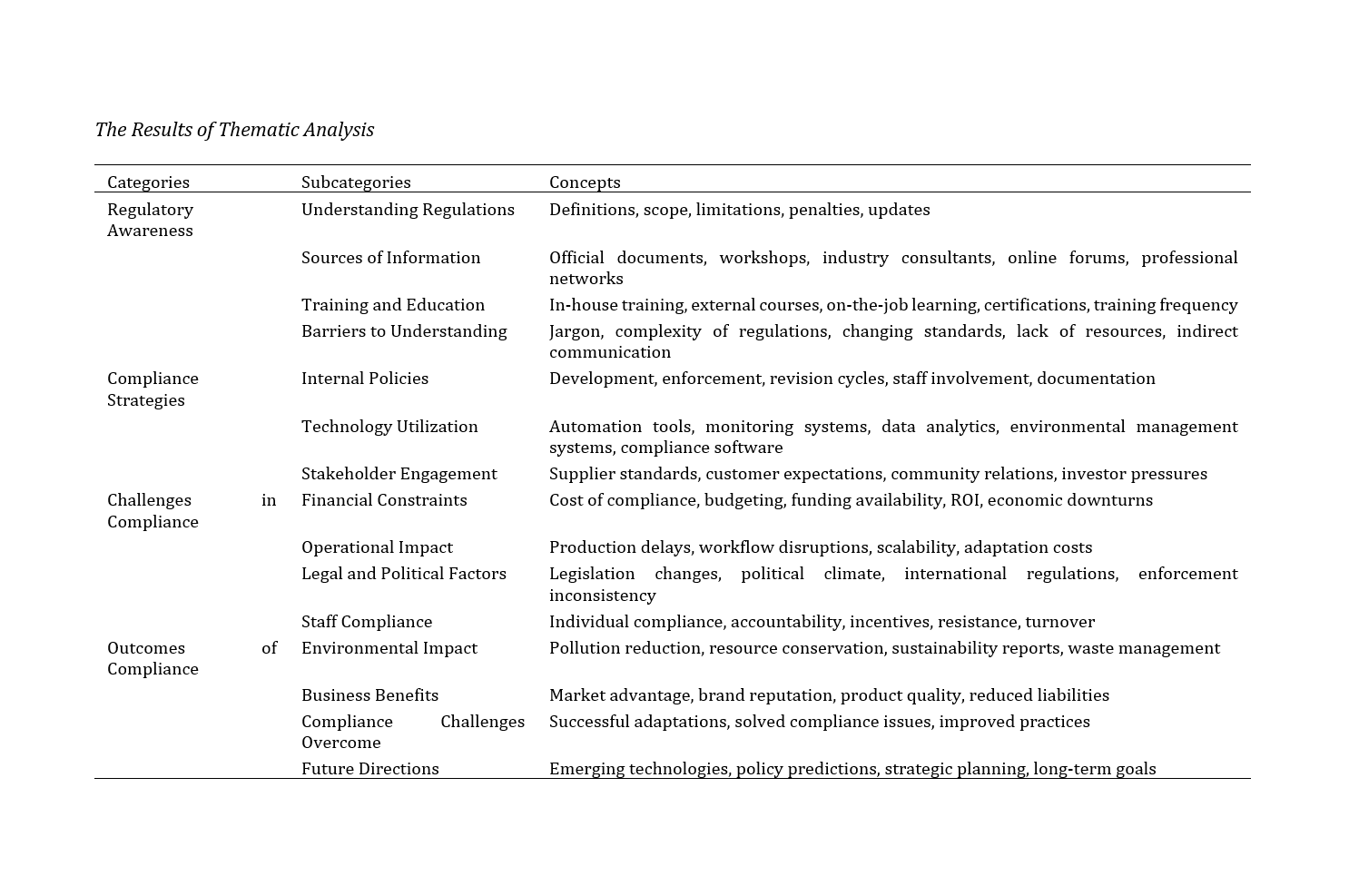Understanding Compliance with Environmental Regulations in the Manufacturing Sector
Keywords:
Environmental Regulations, Manufacturing Sector, Compliance Strategies, Qualitative Research, Regulatory Awareness, Environmental SustainabilityAbstract
Environmental regulations play a critical role in promoting sustainable practices within the manufacturing sector. However, the complexities of complying with these regulations can significantly impact the operational and strategic functions of manufacturing firms. This study aims to explore how manufacturing companies perceive and implement environmental regulations, identifying the strategies they employ, the challenges they face, and the outcomes they achieve through compliance. This qualitative study employed semi-structured interviews with 31 participants from the manufacturing sector, including plant managers, compliance officers, and environmental health and safety personnel. Theoretical saturation was achieved to ensure comprehensive data collection. Data analysis was conducted using NVivo software to facilitate thematic analysis and identify patterns within the interviews. Four main themes were identified: Regulatory Awareness, Compliance Strategies, Challenges in Compliance, and Outcomes of Compliance. Key categories under these themes included Understanding Regulations, Technology Utilization, Financial Constraints, and Environmental Impact. Participants reported a continuous need for updated knowledge and training in regulations, reliance on advanced technologies for compliance, financial and operational challenges in implementing regulations, and significant environmental and business benefits from successful compliance. The study concludes that while environmental regulations pose various challenges to manufacturing firms, effective compliance strategies, particularly those integrating technology and stakeholder engagement, can lead to substantial environmental and economic benefits. The findings emphasize the importance of continuous adaptation and proactive management in achieving compliance and leveraging it for business and environmental sustainability.
Downloads






